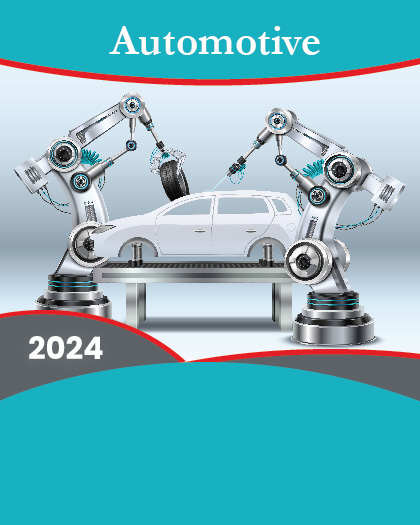
Gasoline direct injection (GDI) system is an advanced and effective fuel injection technology, which offers multiple advantages such as higher thermal efficiency by stratified operation, increased compression ratio, decrease in fuel consumption & carbon dioxide emissions, lower heat losses, and others as compared to other gasoline fuel injection technologies. The environment protection agencies have drawn down the emission limits annually, owing to increase in air pollution. Furthermore, rise in price of the fuel necessitates improvements in engine efficiency. Since the engines with carburetor do not hold the air-fuel ratio near the stoichiometric mixture at different working conditions, catalytic converter cannot be used in these engines, therefore, these engines have high emission valves and low efficiency.
The GDI systems market is expected to witness high growth rate during the forecast period owing to engine downsizing, improved engine performance & thermal efficiency, high fuel efficiency, turbocharging, and significant reduction in emission. Passenger cars and commercial vehicles jointly account for the major share of GDI systems market revenue. Manufacturers such as BMW, Daimler, KIA Motors, Ford, and others incorporated GDI systems in most of their mid-range and high-end gasoline-driven vehicles. Leading market players focus on improvement in this technology, and invest significantly in R&D for the same. For instance, in 2016, Proton Holdings Berhad, a Malaysian carmaker, invested $136 million in R&D of a new range of engines in collaboration with Ricardo Plc and Lotus Group.
The GDI systems is driven by increase in demand for fuel-efficient, high-performance, and low emission vehicles. In addition, the trend of reduction in vehicular emission due to stringent government regulations is expected to fuel the growth of GDI systems market. However, high cost of GDI system due to high pressure components and increase in penetration of electric vehicles impede the market growth. Furthermore, increase in particulate emissions such as NOx, which is difficult to curb post combustion, restrains the growth of the market. Development of advanced GDI system such as turbo GDI and integration of these systems in hybrid vehicles to improve propulsion are anticipated to provide lucrative opportunities for the stakeholders of this market such as system integrators, vehicle manufacturers, engine manufactures, and component providers.
The market segmentation is based on component, vehicle type, and geography. On the basis of component, the market is classified into fuel injectors, fuel pumps, sensors, electronic control units (ECUs), and others (fuel pressure regulators and high pressure line). By vehicle type, it is bifurcated into passenger cars and commercial vehicles. Geographically, the market is analyzed across North America (U.S., Canada, and Mexico), Europe (Germany, France, Italy, UK, and rest of Europe), Asia-Pacific (China, Australia, Japan, India, and rest of Asia-Pacific), and LAMEA (Latin America, Middle East, and Africa).
The key players profiled in the market include Magneti Marelli S.p.A (Italy), Robert Bosch GmbH (Germany), Delphi Automotive LLP (UK), Continental AG (Germany), DENSO CORPORATION (Japan), Eaton (Republic of Ireland), Stanadyne LLC (U.S.), Hitachi Automotive Systems, Ltd. (Japan), Keihin Corporation (Japan), and TI Automotive (U.S.).
KEY BENEFITS
The report includes an extensive analysis of the factors that drive as well as restrain the growth of the global automotive GDI systems market.
The market projections from 2014 to 2022 are included along with the affecting factors.
The report also provides quantitative as well as qualitative trends to assist the stakeholders to understand the situations that prevail in the market.
Extensive analysis by vehicle type helps to understand various types of vehicles that utilize GDI to cater to the power demands and control emissions.
Competitive intelligence highlights the business practices followed by leading market players across various geographies.
MARKET SEGMENTATION
BY COMPONENT
Fuel Injectors
Fuel Pumps
Sensors
Electronic Control Units
Others (Fuel Pressure Regulators and High Pressure Line)
BY VEHICLE TYPE
Passenger Cars
Commercial Vehicles
BY GEOGRAPHY
North America
U.S.
Canada
Mexico
Europe
Germany
France
Italy
UK
Rest of Europe
Asia-Pacific
China
Australia
Japan
India
Rest of Asia-Pacific
LAMEA
Latin America
Middle East
Africa
MARKET PLAYERS IN THE VALUE CHAIN
Magneti Marelli S.p.A
Robert Bosch GmbH
Delphi Automotive LLP
Continental AG
DENSO CORPORATION
Eaton
Stanadyne LLC
Hitachi Automotive Systems, Ltd.
Keihin Corporation
TI Automotive
Other players in value chain include (profiles not included in the report)
Renesas Electronics Corporation
Nostrum Energy
GP Performance
Infineon Technologies AG
Synerject LLC
Airtex Products
























